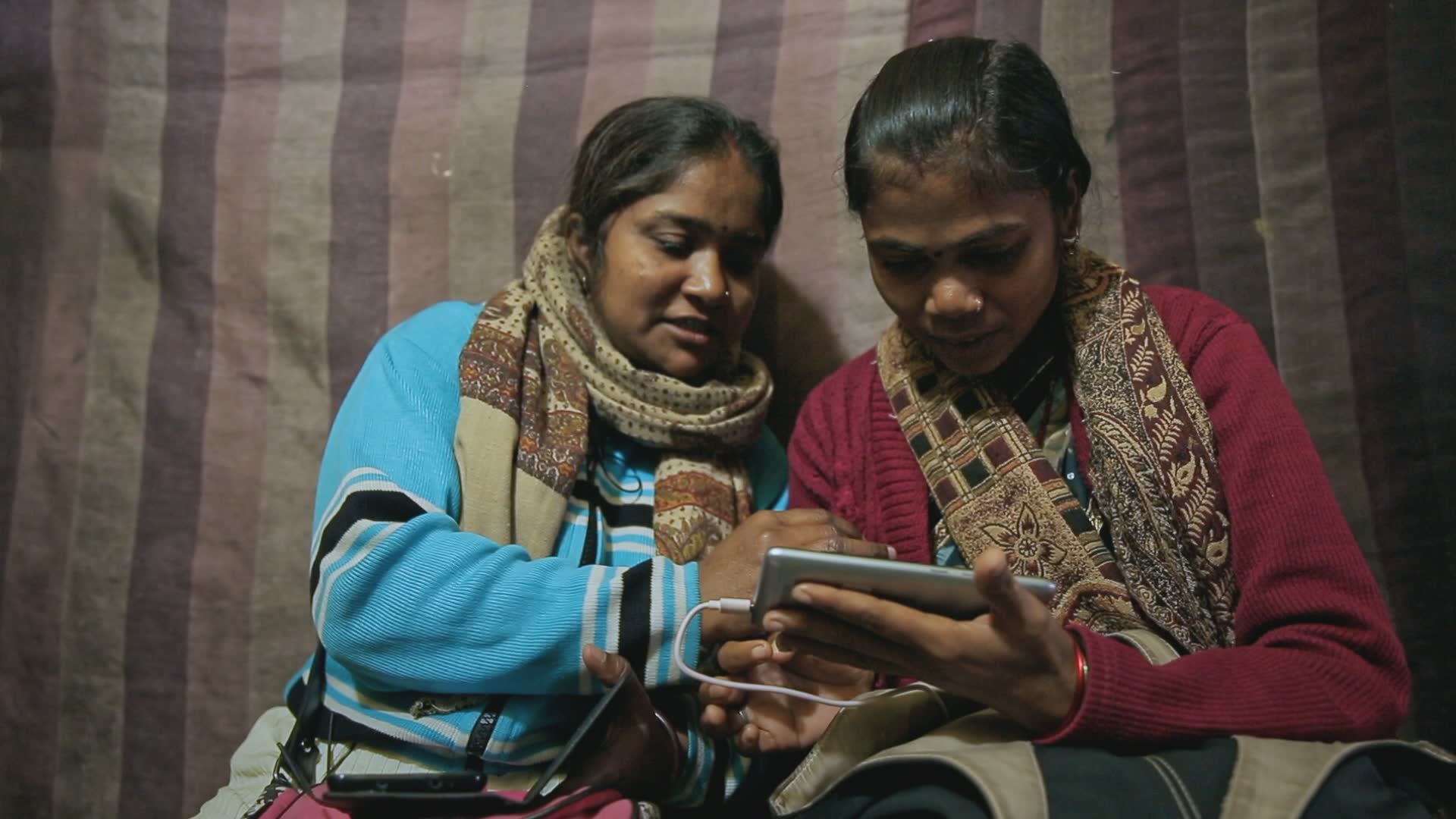
- Film
Docs: Writing With Fire – The Brave Female-Run Newspaper with a Global Reach
Writing With Fire, Rintu Thomas and Shushmit Ghosh’s feature documentary debut tells the story of Khabar Lahariya, a female-run newspaper in northern India whose journalists are all Dalit, the lowest group in the Hindu caste system.
Highly acclaimed, the film has won an audience award and special jury award at the 2021 Sundance Film Festival and is nominated for best feature honors by the International Documentary Association (IDA). It’s on US screens in select theaters across the country.
The documentary was produced by The Black Ticket Films, the social justice-focused production company that Thomas and Ghosh had founded in 2009.
The film played at more than 90 festivals along with Sundance and won 25 awards at San Francisco, Krakow, Molodist, Seattle, Wisconsin, and Washington; eight of those awards were for best documentary. The filmmaking will be presented with the Courage Under Fire award at the 37th Annual IDA Awards ceremony, in February 2022.
For ten years, Thomas and Ghosh have been making short films that focus on social advocacy and education. They have exhibited their works in the United Nations Climate Change Conference and the Lincoln Center for Performing Arts, among many forums.
The new feature is co-presented as an initiative advocating for over 4,500 women and non-binary people of color working in the documentary film industry around the world.
As Thomas observes: “We fight inequality by building community and sharing resources, nourishing our creative brilliance, demanding access and visibility in creative and professional environments, enriching our community with the knowledge to sustain ourselves financially, and by cutting through oppressive industry structures to advocate for our members. Our work is meant to serve as a catalyst for starting relevant conversations.”
Rintu Thomas is an award-winning director-producer from India whose work is supported by the Sundance Institute, Chicken & Egg Pictures, IDFA, SFF Film Fund, Doc Society, Tribeca Institute, Finnish Film Foundation, and Bertha Foundation, among others. Sushmit Ghosh is a director and cinematographer from India whose work has been supported by all the above organizations. Married for six years Thomas & Ghosh live between New Delhi and the mountains and, in their spare time, enjoy discovering quaint bookshops.
“Instead of patronizing me, why don’t you give me an interview,” says one of the intrepid female reporters from the Indian newspaper Khabar Lahariya (KL, which roughly translates into Waves of News), which was started and is entirely run by Dalit women.
The Dalit caste is considered the lowest, or ‘untouchable’ societal group in India. These women, their courageous work, and the rise of Khabar Lahariya are the subject of the socially relevant and historically timely documentary, Writing with Fire, which has been five years in the making.
The end result is not only inspirational but well-crafted filmmaking, showing women going against societal norms and expectations to change their world for the better. To the film’s benefit, Thomas and Ghosh make certain the audience sees them doing so in empirical and quantifiable ways.
The feature is set in Uttar Pradesh, India’s most populated state, an area known for the oppression of its minorities and violence towards women. After fifteen years in print, KL commits to increasing its reach by building its online presence. Viewers watch the chief reporter Meena, her colleague Suneeta, and other newer KL reporters as they investigate stories and build their YouTube channel. Gradually, the enterprise goes from near-invisibility to having 15 million views, and then the number increases rapidly to over 150 million views.
Their coverage puts them in danger as women in environments mostly populated by male-dominated power. Nonetheless, changes in policy and governance happen directly through their video stories calling attention to broken roads, unsanitary conditions, violence towards women, and political corruption, often to the betterment of Dalit citizens who have been ignored and underserved.
More specifically, one story leads to a whole town getting the novel facility of real toilets. The government had been saying they were already there, but KL revealed that was a lie. Another story about a rape case of a Dalit woman leads to an investigation of a crime that had been totally ignored until KL starts covering it. These women don’t back down, even in the most threatening of environments.
There is an element of the storytelling that follows the devolution of India’s political climate from progressive to right-wing authoritarian, manifest by the youth leader Satyam, whose rise Meera describes in great detail. Satyam, a member of a popular Hindu vigilante organization, spews hateful rhetoric and is a popular candidate in line with the Prime Minister’s ideology of a pure Hindu state.
Meera is aware that her coverage puts her work–and life–in real danger. She knows that several independent journalists in India have been intimidated, jailed, or murdered–and they aren’t even Dalit women. These reporters are putting themselves at huge risk in every imaginable way.
At first, most people said that a newspaper run by women in the lowest caste would never work. Now KL has a staff of 29, hundreds of millions of hits on their YouTube channel. Its greatest achievement is existing, not to mention succeeding in a landscape that’s still largely male-dominated.
Far from being a preachy or pedagogic, Writing with Fire is a story of women taking their destiny into their own hands, changing how the world perceives them, and how they see themselves, while not neglecting the purpose of educating and enlightening global groups of viewers who have never heard before of their honorable organization.

